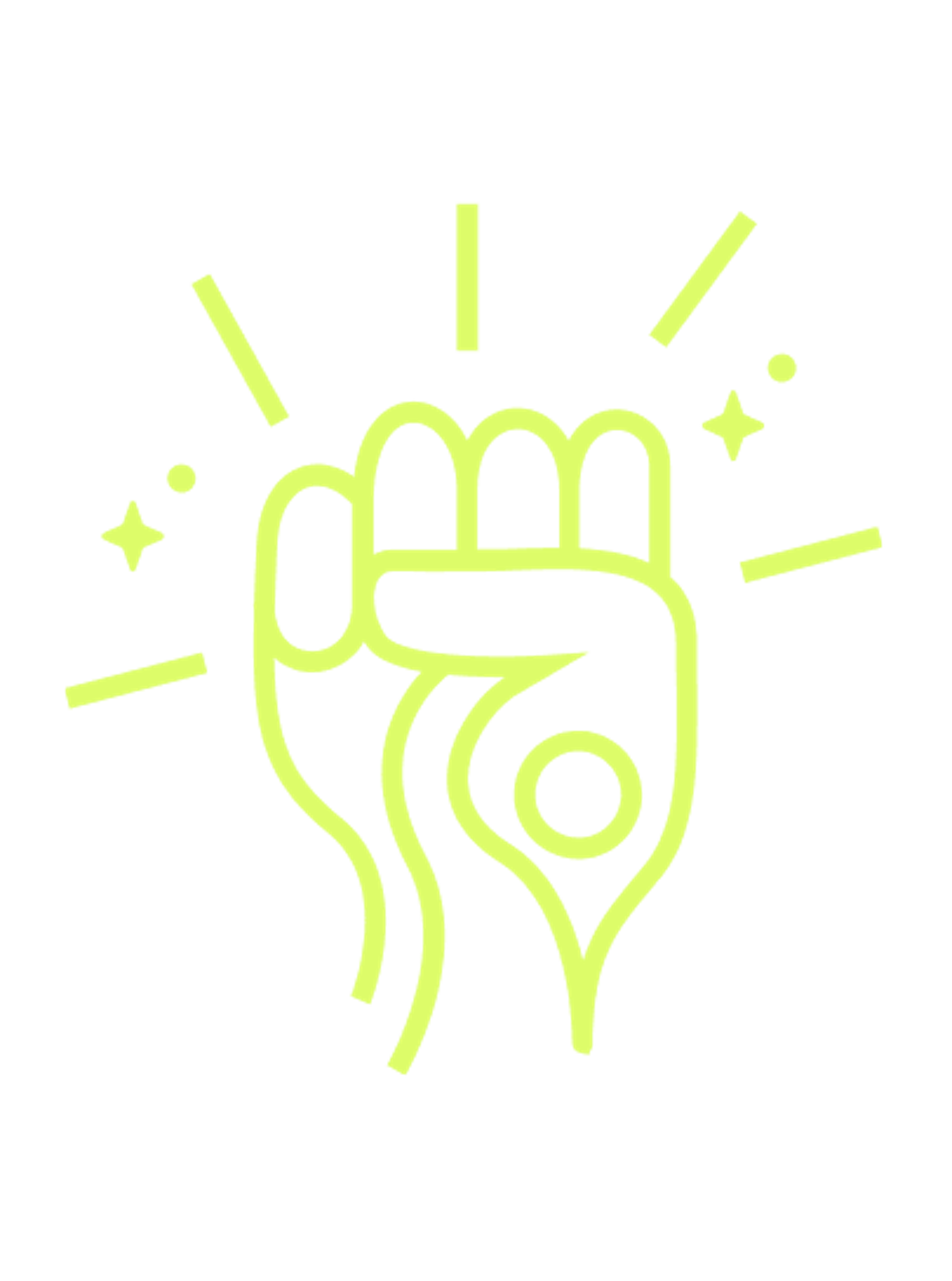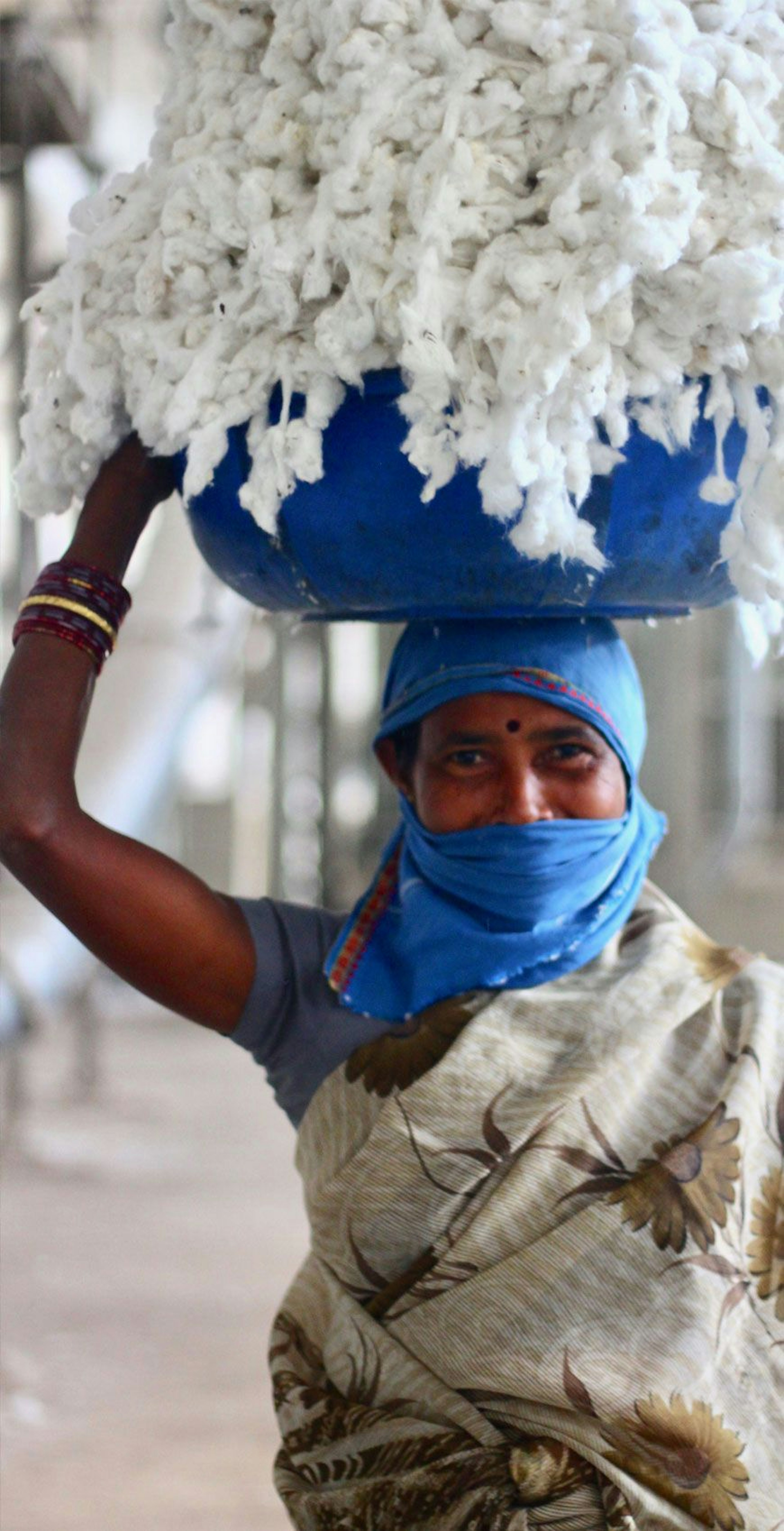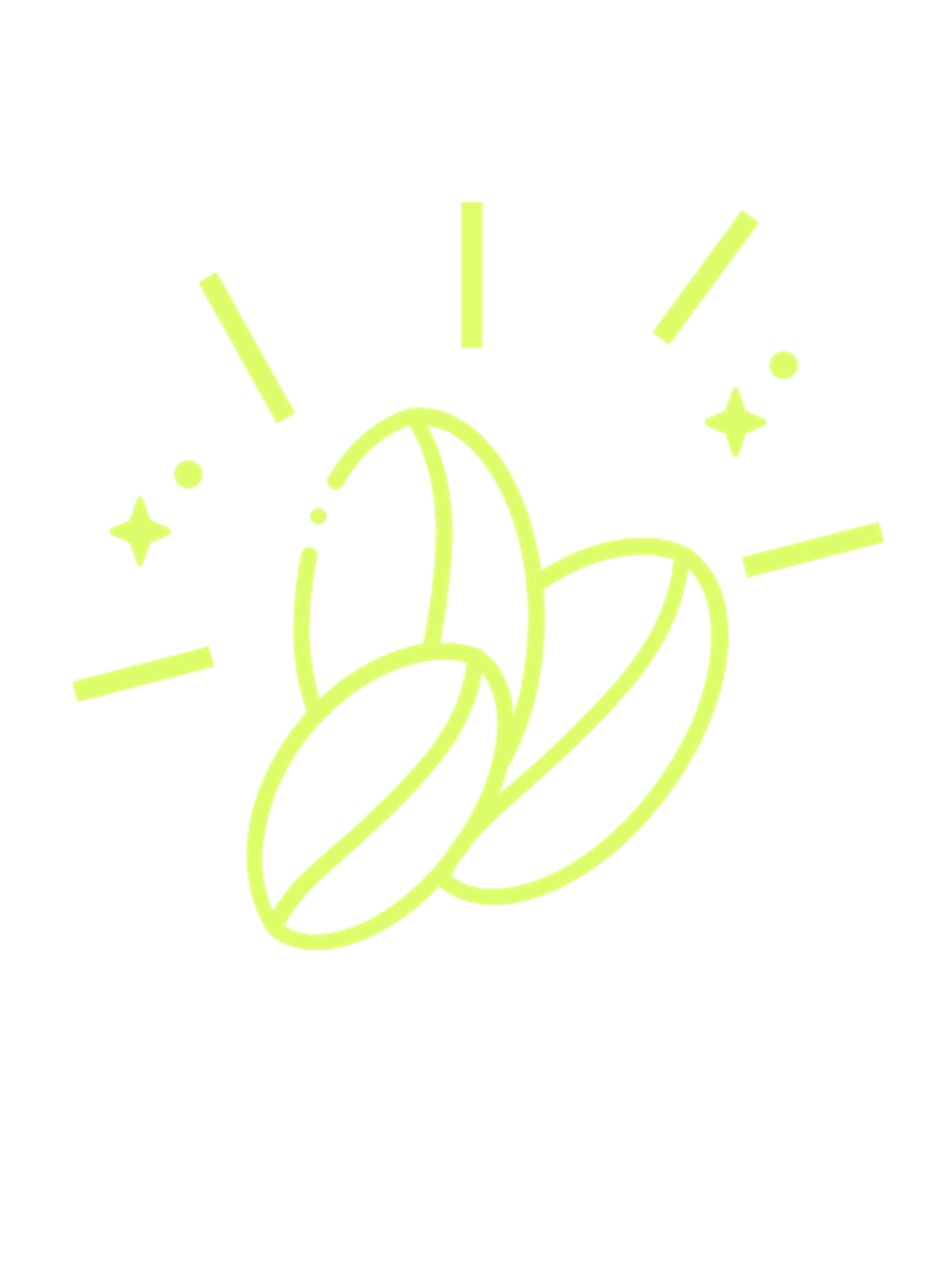Salient Issue
Gender Equity
Women grow between 60 and 80 percent of the world’s food but their work often goes unrecognised and they lack equitable access to resources. In many areas, women farmers have lower access to land, finance, and membership rates in farmer organisations. Women workers often face discriminatory practices and even sexual harassment or abuse.
For women farmers, documented challenges include the inability to access land titles, credit, extension services or membership in farmer organisations. In cocoa farming communities from West Africa to Ecuador, gender inequalities persist around land ownership, land distribution programmes, inheritance, and marriage privileges.
Women are overrepresented in casual work and jobs where pay rates are low. On tea estates, women primarily work as pluckers, with few opportunities for advancement. In coffee, research suggests that women provide up to 70% of the labour for cultivation and harvesting, while men are more involved in pruning and logistics.
Similar dynamics exist in other commodities, including tea, wine grapes, flowers, bananas, cocoa, sugar cane, rice and many fruits and nuts. Women sports ball stitchers in Pakistan and India are often relegated to producing lower-quality promotional balls with lower remuneration.
Women are underrepresented in leadership and management positions at trade unions, farms, and farmer cooperatives.
In some instances, women also earn less than men for the same work. In sugarcane in the Philippines, research suggests that men earn nearly 30% more.
The risk of sexual harassment and abuse is elevated in plantation settings, including flower, tea and banana estates, where women may be working alone over large areas. Much of the abuse is rooted in the power dynamic between low-paid women workers and predominantly male supervisors. In India, child marriages are commonplace in order to form a harvesting pair needed in sugar cane harvesting. It is also common that women are required to submit to pregnancy tests or are fired if found to be pregnant.
Furthermore, women are typically responsible for the majority of household work, in addition to other responsibilities.

According to research
Fairtrade is actively promoting women’s economic empowerment and addressing some of the barriers that women face.
Women’s economic empowerment through Fairtrade: A literature review, 2020, page 15.

Action
Fairtrade's response
Fairtrade works towards gender equity in supply chains and supports efforts by farmer organisations, plantations and other organisations using hired labour to address gender equity violations.
Women make up 20 % of Fairtrade farmers and 45 % of workers, and Fairtrade Producer Networks strive towards greater inclusion. The primary focus of Fairtrade Producer Networks in Africa, Asia and Latin America is to encourage women’s leadership and entrepreneurship, raise awareness of gender equity, and support farmer organisations and plantations1 in strengthening their equity policies and practices. Male farmers and workers are welcomed as well in these efforts.
If gender discrimination is found in Fairtrade audits, the independent Fairtrade auditing body, FLOCERT, agrees on corrective actions and monitors their implementation. Gender-based abuse and violence also trigger Fairtrade’s protection policy.
1: On this page, we use “plantations” to refer to organisations using hired labour.

According to research
Fairtrade has contributed to women’s greater participation and representation in farmer organisations, although gender inequalities are still vast.
Review of research on Fairtrade from 2015-2020, 2022, page 12.
Fairtrade's response in detail
1. Preventive and mitigating measures
Fairtrade utilises a variety of tools to prevent and mitigate the risks related to gender inequity, including tools to prevent and act on any forms of discrimination based on gender. Fairtrade requires work to be safe for all workers at all stages of life, including motherhood.
The Fairtrade Standards are one of the tools used to prevent discrimination and gender-based violence (GBV)1, increase female participation, and enable more women and girls to access the benefits of Fairtrade. Both farmer organisations and plantations must take active measures to make progress towards these objectives. For example:
- Decent work. To discourage the casualisation of female labour, producer organisations must offer written contracts and whenever possible, use permanent or temporary contracts instead of piecework employment. Plantations must use permanent, non-subcontracted workers for all regular work.
- Addressing gender-based violence. All violence and abusive behaviour are prohibited. Where gender-based violence or other forms of harassment are endemic within a sector or region, organisations are encouraged to develop policies, preventive measures and a monitoring system.
- Specific needs. Interventions are required to accommodate women at different life stages, including pregnancy, nursing or caring for young children. For example, Fairtrade Standards require that nursing mothers get breaks for breastfeeding at least until their child is nine months old. Research on Fairtrade flower farms in Ecuador suggests that Fairtrade’s gender Standards are far-reaching compared to other certifications, and that Fairtrade has succeeded in providing stable jobs and equal wages. In addition, the Standards addressing women’s reproductive needs and strengthening their standing both in the workplace and at home.
- Gender policy. Farmer organisations are encouraged to develop and demonstrate progress in implementing a gender policy. Over 50 % of Fairtrade certified coffee and cocoa farmer cooperatives already have a gender policy.
To explore the full set of Fairtrade’s gender equity related Standards, please see the bottom of this page.
Despite these measures, significant gender-based structural and cultural barriers continue to obstruct full participation. This cannot be solved by standards and auditing alone. Fairtrade organisations around the world work in many complementary ways to promote gender equity:
- Training on women’s rights for farmer organisations and plantations. Gender equity and women’s rights are often seen in various cultural and institutional contexts of these organisations, making case-specific training a critical step. Fairtrade pays particular attention to inclusive recruitment, for example by stopping pregnancy testing. Especially in Africa, number of women in leadership positions has increased significantly due to consistent trainings. Among farmers, support for gender equality is high: in a 2022 study, 99 % of coffee farmers, 98 % of banana farmers and 96 % of cocoa farmers supported equal roles in education, household management and employment opportunities. However, work remains to be done – only 24 % of coffee farmers, 21 % of cocoa farmers and 20 % of banana farmers in the SPO General Assembly were women.
- Gender Committees have been established by many producer organisations with the support of Fairtrade Producer Networks. Gender Committees encourage women to participate in trainings, speak up, apply for leadership positions, and take on roles traditionally dominated by men. They also organise opportunities for skill development and promote more accurate collection of gender-related data. Fairtrade Africa has, for example, supported the establishment of Gender Committees on each of Kenya’s certified flower farms.
- Women’s schools of leadership have been rolled out by Fairtrade Producer Networks across Africa, Asia and Latin America. These courses offer women insights on gender equity and practical skills such as negotiation, group decision-making, leadership and finance. Some male participants are also welcomed, as equity requires effort from all. Many women have since taken on leadership and committee positions within their cooperatives and communities, set up Gender Committees at their own cooperatives, and launched projects to improve women’s livelihoods. So far, roughly 1 100 participants from 18 countries have graduated and have in turn offered training to thousands of community members. Watch participants' feedback.
- Programme interventions are funded by public funders, retailers and brands interested in supporting gender work where they source their products. For example, in 2021 Fairtrade launched a three-year project to improve women’s status and address harassment in the Kenyan flower industry. For information on this and other current projects, please see Fairtrade’s Impact Map.
- The Fairtrade Premium allows farmer organisations and plantations to invest in projects that bring direct benefits to women. Find an overview of the use of Fairtrade Premium here. Research finds that women on Fairtrade certified flower farms in Ecuador have benefited from many Premium-funded services. Over 95 % of them have accessed educational programmes, nearly 90 % have used medical services and 60 % have taken out loans. In addition, a Fairtrade assessment shows that women’s participation in Fairtrade cooperatives is higher than in non-Fairtrade cooperatives.
- Awareness raising and advocacy work among businesses, governments and citizens is essential in the push for more action on gender rights. Fairtrade works actively with producer organisations, NGOs, trade unions and companies to elevate farmer and worker voices and experiences. Fairtrade is conducting a research project (2024–2025) to better understand the barriers faced by female farmers in terms of land rights, access to credit and training, and the advocacy actions that can be undertaken in this area. Please find the latest news on this work at Fairtrade International’s website.
At the export, import and manufacturing stages, Fairtrade’s gender equity interventions are currently less comprehensive than at the production stage. The Fairtrade Trader Standard requires companies to be aware of and not violate the national labour laws and fundamental ILO Conventions, including those on equal remuneration and non-discrimination. This applies in Fairtrade certified supply chains regardless of whether the local country has ratified these ILO Conventions or not. If there are any prior indications of non-compliance, these are checked in audits.
In addition, traders are required to pay the Fairtrade Premium and Minimum Price, which support farmer organisations and plantations to invest in socio-economic development, including schools for children, and childcare facilities to reduce the burden on women and ensure equal opportunities for all genders.
1: Gender Based Violence (GBV) refers to any harmful act that is perpetrated against a person’s will and is based on socially ascribed gender differences between females, males and other genders. Examples include sexual violence, forced prostitution, domestic violence and trafficking.
2: Remediating measures
Despite our efforts, gender equity is yet to be achieved and violations of gender rights occur in Fairtrade certified supply chains as well. Deeply rooted socio-cultural factors limit gender equity and the realisation of women’s rights.
Where FLOCERT, the independent Fairtrade auditing body, identifies a violation of a core gender requirement, it requires corrective measures: typically, a policy and an action plan or programme to facilitate the remediation2 of the identified case and to mitigate the risk of further cases. If the corrective measures are not fulfilled, the organisation is decertified3.
In addition, Fairtrade is committed to protecting vulnerable individuals from gender-based violence and harassment. Whenever such a case is identified or alleged, we act to protect the affected individual(s) according to our Protection Policy. We work with national agencies and/or NGOs and seek to enable safe remediation and long-term wellbeing. We also work with the producer organisation to strengthen their programmes and systems to address risks to equity.
However, Fairtrade cannot guarantee that each harassment case is fully remediated. Full remediation means that the impacted person is in a safe place, rehabilitated and compensated. Full gender equity requires significant changes in attitudes and deep-seated cultural beliefs, a process which is bound to take time. Remediation requires contributions from the actual duty bearers – local public authorities and the companies who have caused or contributed to the case.
Fairtrade also supports farmer organisations with capacity building and tailor-made programmes to strengthen their monitoring and remediation systems for gender rights violations, and in particular gender-based violence.
For example, Fairtrade has supported several producer organisations to establish a Youth Inclusive Community Based Monitoring and Remediation (YICBMR). In the Philippines, at the Dama Farm Workers Agrarian Reform Beneficiaries Association, a YICBMR project has provided orientation on gender-based violence in communities and supported the development of day-to-day monitoring of gender-based violence. The program was developed in 2012 and is still running. These programmes can be partially funded from Fairtrade Premium and often entail partnerships with local actors.
Fairtrade has a global level grievance mechanism – the allegations mechanism housed at FLOCERT – which is under reform to strengthen its alignment with the UN Guiding Principles on Business and Human Rights.
In addition, Fairtrade certified plantations are required to have a grievance mechanism in place. Grievance mechanisms are not yet required of farmer cooperatives or traders, but these organisations do need to address and document any human rights and environmental complaints related to Fairtrade Standards..
2: Remediation refers to the process of counteracting or fixing a human rights violation through measures that can include apologies, restitution, rehabilitation, financial or non-financial compensation, and punitive sanctions, as well as preventing the repetition or further cases of harm (UNGP Interpretive Guide, p. 12).
3: Details on the certification process can be found at FLOCERT'S website.

According to research
Fairtrade has contributed to greater gender equality in the studied [coffee] producer organisations despite challenging structural and cultural barriers.
Women's access, equity and empowerment, 2020, page 1.